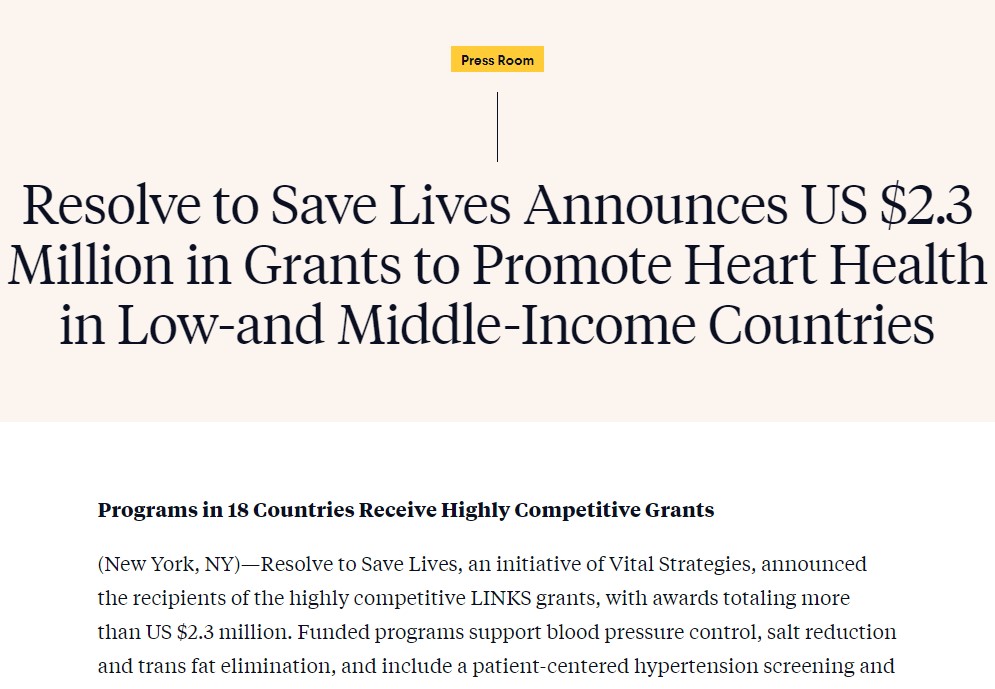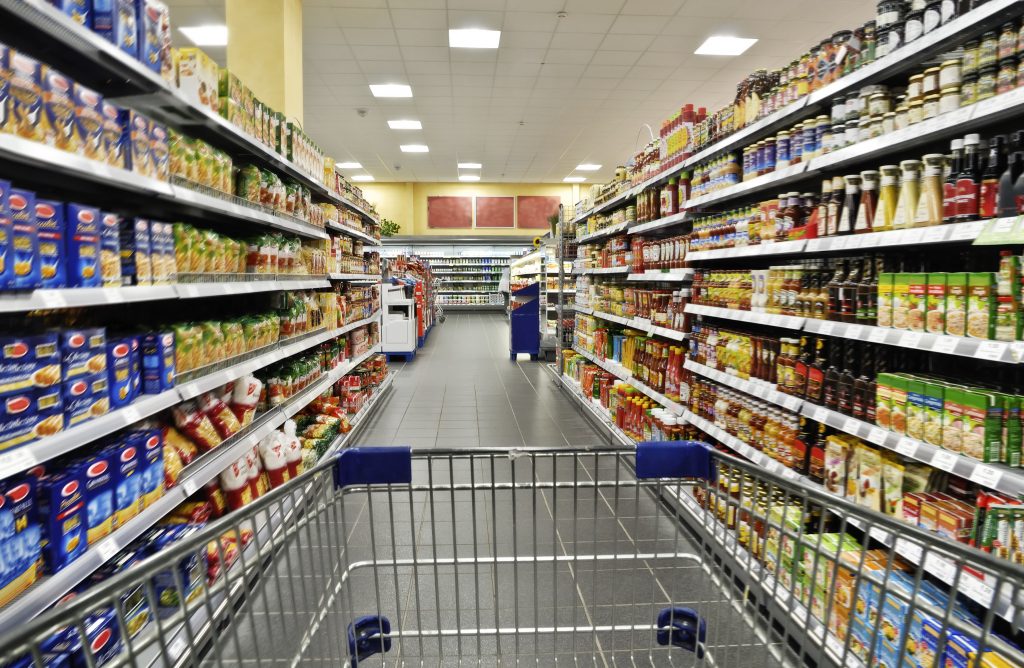Recipients of LINKS grant

The George Institute for Global Health are part of two successful Resolve to Save Lives, LINKS grants this year. The highly competitive grants of over US$2.3million in total will be supporting programs that promote heart health in 18 countries. The George Institute alongside Ministry of Health Malaysia, National University of Malaysia and WHO Office in […]
EFSA establishes sodium and chloride dietary reference values

In September, the European Food Safety Agency (EFSA) published dietary reference values for sodium and chloride. Dietary reference values for the European general adult population were established at 2.0 g sodium (5.0g salt) and 3.1g chloride per day. Values for children and pregnant and lactating women were also established. More information can be found here.
Monitoring Sodium Content in Processed Foods in Argentina 2017-2018: Compliance with National Legislation and Regional Targets

Published in Nutrients in June, Allemandi L et al reported on an evaluation of compliance of Argentinean processed foods with national and regional sodium targets. Data were collected on 3674 food products from four stores between August 2017 and May 2018. 864 products could be compared to the Argentinean sodium targets, which were set under […]
Advocacy organisations file a complaint in federal court to Stop USDA’s Weakening of Nutrition Standards for School Meals

In December 2018 in the US, the Trump Administration rolled back nutrition standards for school meals, including sodium and whole grain standards. For sodium, the new rule delayed the date schools had to comply with the first and second sodium reduction target and eliminated the third target. In April 2019, Healthy School Food Maryland and […]
Packaged foods on the Mexican market found to be high in sodium

Nieto C et al conducted a cross-sectional study to investigate how many products on the Mexican market met sodium benchmark targets. Three benchmark targets were compared against; targets set by the United Kingdom Food Standards Agency (UK FSA), the Pan American Health Organization (PAHO), and the Mexican Commission for the Protection of Health Risks (COFEPRIS). […]
Sodium and Potassium Dietary Reference Intake Values Updates- US

The National Academies of Sciences, Engineering, and Medicine recently reviewed evidence and updated dietary reference intake values for sodium and potassium. Adequate intake (AI) amounts have remained unchanged for 14-50 year olds, and increased slightly for adults over 51 years old. For most children’s age groups the AI has been reduced slightly. The tolerable upper […]
Sodium Levels in Packaged Foods Sold in 14 Latin American and Caribbean Countries: A Food Label Analysis

In 14 Latin American and Caribbean countries, Arcand et al investigated the sodium content of 12 packaged food categories, and determined that 82% of foods were already meeting the regional target at baseline, and almost half were already meeting the lower target. More than 90% of products were already meeting the targets for uncooked pasta and […]
Sodium Levels of Processed Meat in Australia: Supermarket Survey Data from 2010 to 2017

A study by Sparks et al assessed the sodium levels of processed meat products in Australian supermarkets and changes over time. Overall, they found a reduction in sodium levels in processed meats for which the government had established voluntary sodium target’s under the Food and Health Dialogue, and no change for other processed meats. They determined […]
European Salt Action Network restates support for WHO goal of reducing salt intake to 5 g per day or less

The WHO European Salt Action Network (ESAN) released a statement in support of population approaches for salt reduction to prevent cardiovascular diseases. The statement was issued in light of recent publications that have created controversy by questioning the guideline set by the WHO towards a salt intake of 5g per day or less. The statement by […]
Australian consultation on targets: The George Institute response

The Australian Government has recently developed 36 draft voluntary food reformulation targets for sodium, sugar and saturated fat, and released them for public consultation. The George Institute for Global Health strongly supports nutrient reformulation as a public health measure to improve diets and population health and welcomed the opportunity to comment on the proposed targets. […]